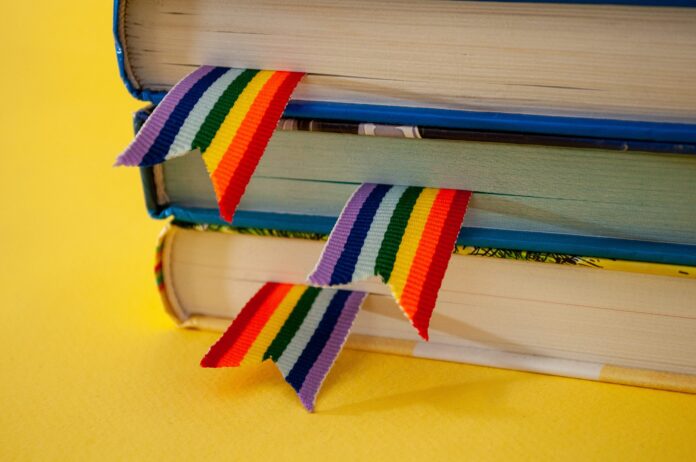When I was in my 20s, I did not see a future where marriage equality would be legal. I did not think I would ever have legal recognition of my relationship with my wife. When we had a child together in 2009, I was not especially hopeful that I would ever be his legal parent.
But both of those things happened when the U.S. Supreme Court ruled in favor of marriage equality in 2015.
Granted, today’s Court is openly hostile to LGBTQ+ rights and that’s scary. There’s no reason to believe that they won’t overturn Obergefell v. Hodges, which made marriage equality the law of the land. It’s not like the radical conservatives who have been fighting against LGBTQ+ rights suddenly stopped in 2015. In fact, they’ve actually gained more power in the government and in our courts. Also scary!
I am reminded of that oft-quoted piece of wisdom from Mister Fred Rogers: “When I was a boy and I would see scary things in the news, my mother would say to me, ‘Look for the helpers. You will always find people who are helping.’”
Granted, that advice is intended for children who cannot be helpers themselves in such situations. But I am reminded of the many people over the course of history who have fought in one way or another against oppression and for progress. A lot of people had to sacrifice a hell of a lot to advance LGBTQ+ rights.
I get it. Being told to “keep fighting” is exhausting. But I think it’s still important to look for the people who are helping. Who are looking at discriminatory laws and hateful rhetoric and saying, “Nope.”
One such person is Ohio elementary school teacher Karen Cahall, who has a 30-year career in the New Richmond Exempted Village School District.
Cahall, like many elementary school teachers, has a lot of books in her classroom. And four of those books contain “LGBTQ+ characters in the plot line.”
A parent complained and her district suspended her for three days without pay. So Cahall is suing.
The four books, reports The Advocate, are “Ana On The Edge” by A.J. Sass, “The Fabulous Zed Watson” by Basil Sylvester, “Hazel Bly and the Deep Blue Sea” by Ashley Herring Blake and “Too Bright to See” by Kyle Lukoff.
The books “have LGBTQ+ characters in them but do not otherwise advocate for or against any particular lifestyle or endorse an LGBTQ+ lifestyle,” reads the lawsuit, which was filed Dec. 2.
I should note that I take issue with the term “lifestyle” here as it has long been used to reduce LGBTQ+ people to a way of living that one adopts, rather than an inherent identity, e.g. vegetarianism.
“None of these books can fairly be considered ‘obscene,’ ‘offensive’ or appealing to prurient interests,” the suit continues. “None of these books describe sexual conduct or sexual activity. Each of these books has serious literary, artistic, political and scientific value. These books each deal with characters who are LGBTQ+ and are coming to terms with feeling different and excluded simply because they are LGBTQ+ and serve to reinforce plaintiff Karen Cahall’s sincerely held moral and religious beliefs that all children, including children who are LGBTQ+ or the children of parents who are LGBTQ+, deserve to be respected, accepted, and loved for who they are.”
Wait, what? A “sincerely held moral and religious belief” that doesn’t hate LGBTQ+ people? Can you imagine?
Well, you don’t have to. Because Cahall is hardly the only person who feels this way.
Her lawsuit is challenging the school district’s “controversial issues” policy which, according to the lawsuit, “vaguely and ambiguously defines a ‘controversial issue’ as ‘a topic on which opposing points of view have been promulgated by responsible opinion or likely to arouse both support and opposition by the community’ — a definition that is so vague and all-encompassing that it could extend to virtually any topic upon which any two random individuals or groups of individuals might find something to disagree about.”
These kinds of policies, which exist to block topics related to LGBTQ+ people and the history/existence of racism, are reactionary and do not actually protect children. If anything, they put children who are in minority groups in greater danger by positioning them as an “other” whose lives aren’t worth learning about and thus not worth considering.
Cahall is taking a risk here. But doing the right thing in the face of opposition is rarely easy. So the next time you are feeling hopeless, look for the helpers like Karen Cahall and remember that there are good people in this world. Even good Karens.

